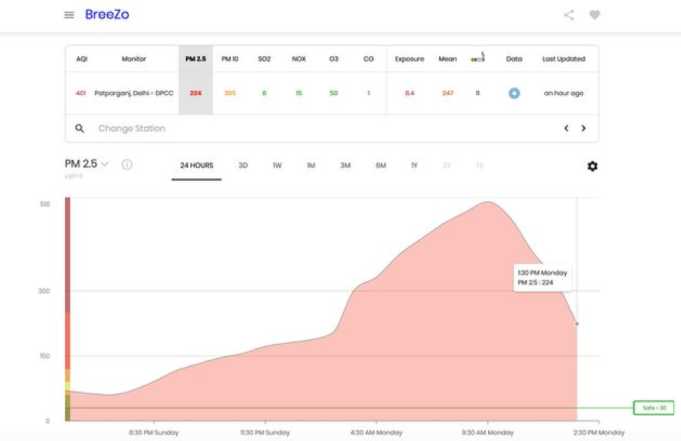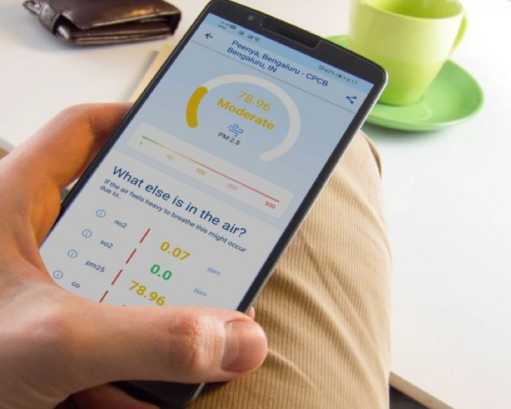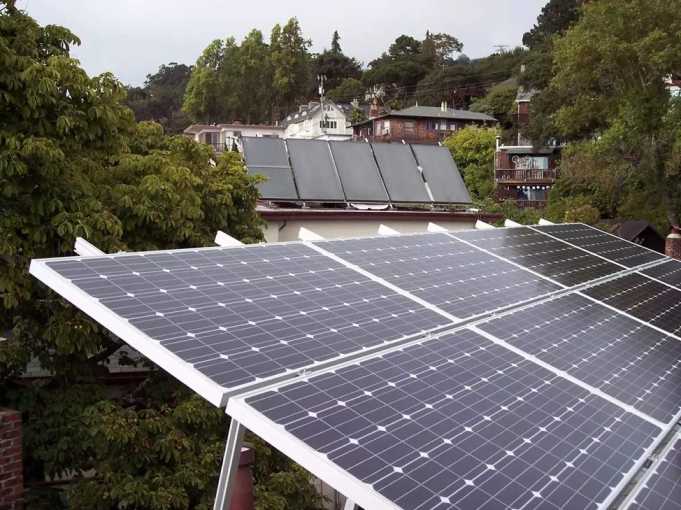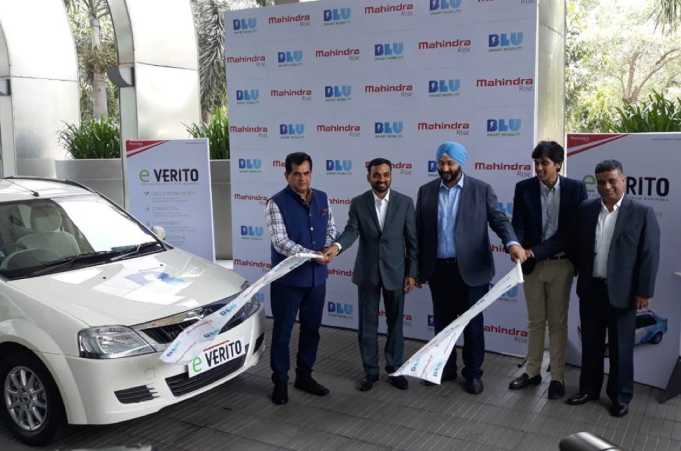This article talks about a few startups that are working to either monitor air pollution or reduce it. Read on to know more about them
Delhi’s air pollution is undoubtedly killing Indians. The political parties seem to be holding each other accountable and talking high on their achievements when it comes to curbing this menace. Meanwhile, the youth and start-ups are trying to find real-time solutions in order to help with finding genuine solutions for the problem.
Some have an idea of making affordable electric vehicles, while some wish to make people aware about the use of solar power. Some on the other hand are talking of taking a step backwards first, and try to understand the root problems of air pollution before doing anything.
1. Breezo

Abhilasha Purwar, the CEO of Blue Sky Analytics, says that solutions prescribed by common Delhi residents like ‘outdoor air purification’ are nothing but a farce. Her startup, on the other hand, analyzes air pollution from monitors working on ground level, and utilizes the satellite data to provide information which is easy to understand for policymakers and researchers.
Seeking for data is the most important part of forming legislatures and policies, and without that, neither the problem, nor the solution can be proposed.
Breezo, by Blue Sky Analytics, has data from a number of sources, as is shown in the graphs. It also gives figures on the exposure level and it being equivalent to the number of cigarettes smoked.
2. Ambee

Ambee was founded in 2017 after one of the founders’ infants kept falling sick of air pollution. He then built a sensor reliant on internet and built a network of the ground-data. Initially, the company’s founders thought that people would want to monitor the air quality they are living in, but they sold only a few hundreds. Akshya Joshi, the CEO of Ambee says that public policy is driven by data, and hence solutions need to be created based on data.
Ambee as a startup says that the satellite images which provide the data today, isn’t available uniformly across India. Ambee is making predictions about weather on a place by utilizing the street level data. This data can also be utilized by policy makers and even private companies, to cut down pollution levels by proper planning.
3. Zunroof

Pranesh Chaudhary, the founder and CEO of Zunroof – a solar-power startup, is focussed primarily in setting up solar installations. Zunroof has now scaled up and is now building smart-devices arm, including pollution monitors. Initially, in order to increase awareness about their product, they are distributing these monitors for free to apartments.
Pranesh says that he knew people wouldn’t pay for monitoring pollution levels, so they put it out for free in the apartment complexes to increase interest and build potential customer base. After this, about 15 apartments from Gurgaon went on board. The problem is, even after offering such sensors for free, it took a lot of convincing.
The founder says that just like buying water purifiers took more than ten years to get used to it, air purifiers will not be a popular thing unless educated people take up initiative to buy an air purifier.
4. Blu Smart

Blu Smart, a ride hailing service like Uber or Ola, which is working presently only in Gurgaon, is focusing on electric vehicles as a taxi service. The company has a total of 145 cars, including some Mahindra e-verito and Tata Tiago Electrics. The goal is to increase the vehicles and shifting a greater proportion to their own application. Punit Goyal, the founder of Blu Smart, says that their goal is to have 10,000 cars on the app.
While the challenge is to convert non-electric to electric vehicles, it surely doesn’t solve the problem of congestion. Hence, ride-sharing is a solution they are focussing on.
Adding to this, they say that while companies like Ola and Uber are also in the process of procuring electric vehicles, they don’t have infrastructure for charging stations. This is where they stand out, with over 25 charging stations and a target of 100 by December.
5. EarthRide

EarthRide is another startup which is making it easier for people to switch from the conventional energy utilizing vehicles to electric vehicles. The company is focussing on supplying the companies which are focussed on delivery drivers – Dunzo, Zomato, Swiggy, etc. These companies aren’t willing to invest in electric vehicles due to complications in entry cost, even though the operational costs remain low.
The company purchases vehicles itself first, and then offers them on lease, with discounts for the delivery drivers. Dhairya Gupta, the CEO of EarthRide says that the whole process leaves the company with enough margins to have a sustainable business.
Dhairya further says that this method helps in increasing the awareness levels among the people in India about electric vehicles. Electric Vehicles, he says, save upto 20 percent of the delivery’s person’s monthly income, and also helping them create a small profit.
6. Happy Seeder

This project is aimed at moving the farmers away from stubble burning. Currently, the farmers leave rice straws in the field, which when the wheat is planted, gets in their way.
Happy Seeder is a machine that allows wheat to be seeded without getting jammed with rice straws. Research by the company shows that the machine would be saving an average Rs. 1000 per hectare for the farmers. However, the initial capital cost remains high and hence an obstacle. Indian government along with collaboration of various state governments can help in this cause.
No one person can change everything, and the companies listed above are happy to be working with any government, because it is literally thousands of life which is at stake in Delhi NCR every year. In the situation of this public health emergency, they are happy to lend a helping hand. Collaborative, open-source ideas, along with broad-level data sharing can be essential steps in solving the complicated issue at stake. Clearly, the solutions are simple but worth a try.
Also Read : Air Pollution in Delhi: Is Odd-Even Enough to tackle the problem?










Like!! Thank you for publishing this awesome article.